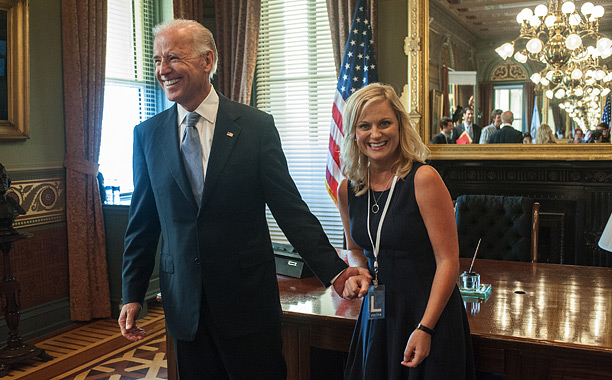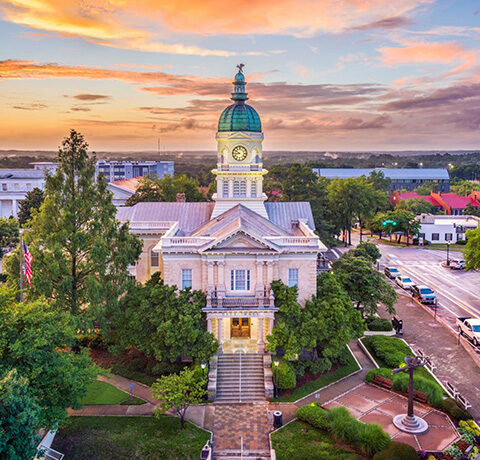By: Cody Knapp
Americans have always been infamously ambivalent about their government. This seems logical; in fact, one of the things that sets the United States apart from other nations is that it was founded through a violent revolution against the most powerful government in the world at the time. This historic ambivalence stems from our seemingly inherent distrust of government and its employees, the bureaucrats. Anti-government sentiments, best summarized by right-wing icon Ronald Reagan’s statement that “government isn’t the solution, it’s the problem,” have formed the basis for a significant portion of American political philosophy since the Revolution. As the U.S. government has grown at all levels over the last half century, Americans’ trust in it has declined at a worrisome rate. Government entities routinely receive abysmal approval ratings from their constituents, polls reveal that well over two-thirds of Americans believe that the government wastes tax dollars, and many politicians are able to make careers running against the record of the very government they lead.
In this time of extreme skepticism about government’s ability to effectively and efficiently address the needs of its constituents, American anti-governance extends well beyond the railings of politicians of all stripes against the inefficiencies and failings of government; it trickles down and gains expression and endorsement even through popular culture. Perhaps the best example of this expression can be found in the beloved character of Ron Swanson from the hit series Parks & Recreation.
On Thursday nights, millions of Americans tune into NBC to revel in the humor of this delightful mockumentary that follows the lives and actions of a fictional collection of local government bureaucrats. Ron Swanson is the show’s deadpan, government-hating director of the Pawnee City Department of Parks and Recreation, a man’s man who is constantly stating his belief that government is a complete waste of taxpayer money. In fact, his idea of the perfect government is “one guy who sits in a small room at a desk, and the only thing he’s allowed to decide is who to nuke.” In one of his more memorable moments, Ron Swanson finds himself in a teaching moment when a young girl asks him to help her on a school paper with the prompt “Why Government Matters.” His immediate reaction:
“It’s never too early to learn that the government is a greedy piglet that suckles on a taxpayer’s teet until they have sore, chapped nipples. I’m gonna need a different metaphor to give this nine year old.”
The more appropriate metaphor that Ron finally selects involves him eating the girl’s lunch and giving her nothing in return, thus exhibiting the injustice of government taxation. Through hyperbole, Ron demonstrates the average American’s sneaking suspicion that any time government works, he or she pays a price.
In Parks and Recreation, Ron’s anti-government stance is juxtaposed with the good-government optimism of Leslie Knope, the deputy director of the Department of Parks and Recreation. Ideologically, Leslie is Ron’s polar opposite; she is a dedicated bureaucrat who firmly believes in the worth of all public projects. She works tirelessly to provide quality public goods to the people of Pawnee, maximizing communal benefits as much as possible with the limited budgetary resources available. Her intensity and naïveté drive the show’s plot, as she pursues increasingly daunting projects each season.
During season 2 of Parks and Recreation, the Pawnee city government finds itself in a debt crisis. When Ben Wyatt, an Indiana state government auditor, arrives to “gut [the budget] with a machete,” Leslie reminds him that the potential cuts have consequences for “real people in a real town, working in a real building with real feelings.” Ben responds by asking if the building Leslie works in has feelings. Leslie responds by saying that “There’s a lot of history in this one. Maybe it does.” When the budget task force decides that Leslie should be one of the victims of government downsizing, it is the vehemently libertarian Ron who steps in to defend her, saving her position and, by extension, the Parks and Recreation Department.
The most important aspect of the show is not the cooperation and friendship between Ron and Leslie despite their enormous differences, nor is it the battle over budgetary priorities we can easily observe on the surface. In reality, ideological differences do cause fundamental clashes over priorities and tough choices must be made, with some programs being cut or losing primacy. The show’s deeper message can be found in what Leslie consistently articulates about government through her determination and firm belief in the government’s ability to provide valuable public goods.
American government is not merely a coercive entity, a Hobbesian leviathan that arbitrarily imposes an ordered system on its citizens in an effort to maintain its power and guarantee private property rights. In a democracy, such as the U.S., government also represents the collective will and priorities of its constituents, best understood as the sum total of our wishes and desires. By extension, government’s institutions and initiatives become figurative incubators and amplifiers for the collective goodwill of their employees. It is the shared drive of front-line bureaucrats to provide quality outcomes to their constituents that represents the true power and potential impact of government.
People matter. This is the message at the heart of Parks and Recreation. It’s also the message that is most often missing in public discourses on the role of government. Conservatives intent on tearing government down and liberals intent on expanding services consistently ignore the role that motivation and sincerity at the ground level play in the implementation of legislative and policy priorities.
To counteract this, our emphasis as a society should not be solely on political ideology or fiscal stringency; it should be on the cultivation of a concept of civic responsibility and ethics among the citizenry. Thereby, we will encourage the Leslie Knope’s of the world to join the bureaucracy and seek to make a difference not through politics, but through administration, thus bringing a more tangible collective morality to government actions and government reform. While government is certainly not a cure-all for the ills of the modern era, it is necessary. After all, it offers the greatest potential for collective action, and just a few Leslie Knopes can help maximize the benefits for us all.

